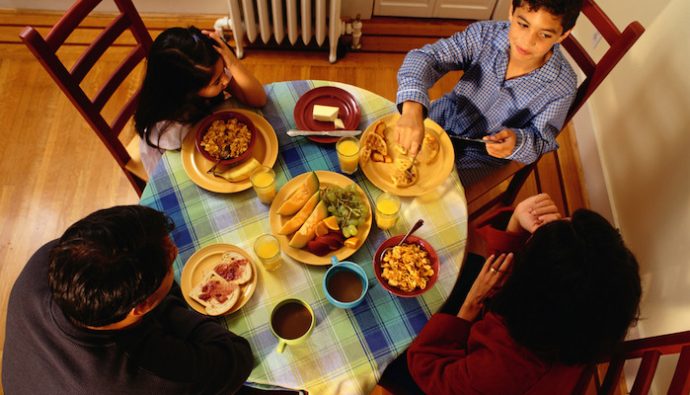There is a particularly troubling command from Jesus recorded for us in Luke 14:25-27:
Now great crowds were traveling with him. So he turned and said to them: “If anyone comes to me and does not hate his own father and mother, wife and children, brothers and sisters—yes, and even his own life—he cannot be my disciple. Whoever does not bear his own cross and come after me cannot be my disciple.”
No one ever accused Jesus of being a great marketer. In this case, there were throngs of people going along with Him. Some were there out of faith; some were there to see the show; some were no doubt there because it was just “the thing” to do. But regardless, Jesus was the best show in town. And a ton of people were recognizing it. This would, no doubt, be a great time to seize the momentum; pour gas on the fire; take advantage of the opportunity. If ever there was a moment to take His ministry to the next level in terms of His platform and notoriety, surely this was it. But Jesus did the exact opposite.
Instead of drawing the crowds, He dispersed them. Instead of making it easier to follow Him, He made it more difficult. Instead of telling them what they wanted to hear, Jesus told them the hard truth. And in this case, that hard truth was about family:
If anyone comes to me and does not hate his own father and mother, wife and children, brothers and sisters—yes, and even his own life—he cannot be my disciple.
What are we to make of this? And what are we to make of this command to hate our families especially since Jesus is decidedly pro-family, saying that we should love our fathers (Matt. 19:19)?
Jesus’ point here is one of allegiance. When we are following Him, then everything else not only takes a back seat; everything else is irrevocably changed. All our priorities. All our expenditures. And, yes, all our relationships. Our allegiance to Jesus is of the highest order so much so that everything else revolves around it.
What, then, does it look like to “hate” our families in this sense, especially when we love our families? Let me offer three suggestions:
1. Let them go.
When Jesus and His kingdom are our greatest allegiance, then we come to understand that our families are another part of our stewardship for the sake of His kingdom. If we are to “hate” our families, it means we must be willing to let them go for the sake of His kingdom.
For some, that means walking away from the family values and priorities that don’t align with Jesus and His kingdom. We must be willing to break from that authority when it competes with the authority Jesus lays over us.
But for others – for those, for example, who are trying to raise their kids in a home that loves and honors the Lord – this means we must be willing to let our children go. We must be willing to encourage in them the desire to take the gospel to the nations. We must be willing to embrace that they might not have a career that pays a lot of money, and yet will pay dividends in heaven. We must be willing to love that they might not ever be married but instead remain single so that they might have greater mobility for the sake of the gospel. We must let them go and live far away from us. And we must let them go from the dreams of comfort and prosperity we have for them.
2. Reflect kingdom priorities.
“Hating” our families in this sense also means that we must be committed to having kingdom priorities. That means all the opportunities our families have – and there will be many – must be held in light of what we know about the kingdom of God.
There are all kinds of implications here, each of which might make the family less comfortable. It might mean that instead of spending more on family vacations, we choose to allocate our money to give more generously. Or it might mean that a travel sports team has to take a backseat to church attendance. Or it might mean that certain relationships with other kids have to be questioned by parents. All of these things are filtered through the lens of Jesus’ kingdom – and there is a cost to each one.
Kids in the family might not understand these decisions because it seems to them like loss – that they are losing out on a potential opportunity for advancement in popularity, social standing, or athletics. And yet that choice is made specifically according to the priorities of God’s kingdom.
3. Point them to Jesus.
One final way we “hate” our families when we love them is that we are always, always, always pointing them to Jesus. In our discipline, we point to Jesus. In our conversations, we point them to Jesus. In our playtime, we point them to Jesus.
In all things, Jesus is center.
No doubt, a thing like this might get tired and old to certain family members, especially of the younger variety. They might even think that we are more concerned about Jesus than we are about them.
Good. Because that is true. And it should be. Kids ought to understand that they are not the center of the family – Jesus is. And for a time, this might seem to them as though we hate them. But we don’t. We love them. But we love Jesus more. And because we do, we are doing all we can in light of both.
Jesus was serious when He told us to count the cost in following Him, for the cost is great. But He was also serious when He told us that those who do count the cost, and do follow Him, will find true life on the other side of the loss.
May that be so for us. May it also be so for the families we “hate” in light of Jesus.
Subscribe to MichaelKelley.co
Never miss a new post. Subscribe to receive these posts in your inbox and to receive information about new discipleship resources.






1 Comment